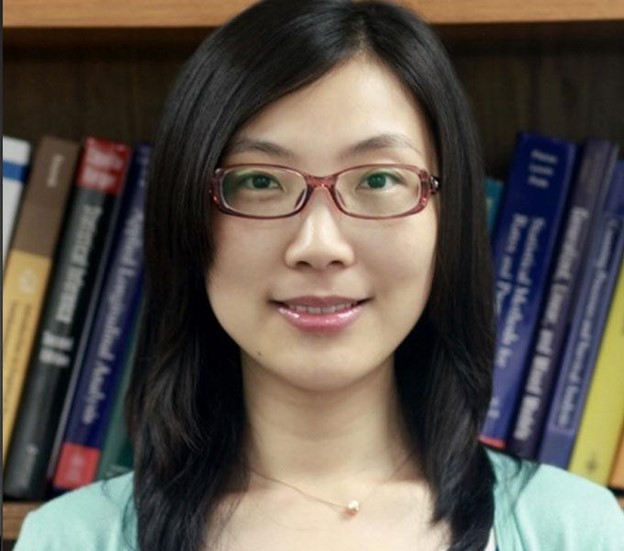A mentoring team will consist of three members, each of whom will be selected by the early career faculty members in conjunction with the department Chair and Steering Committee. Mentoring team selection should begin immediately and be completed within the first three to six months of appointment.
Of the three members, one will be a Career Mentor who will provide oversight and mentorship around career trajectory and professional goals, the second will be a Scientific Mentor who will provide oversight and mentorship around appropriate discipline specific development and activities to advance research, and the third will be a Networking and Personal Mentor who will provide oversight and mentorship around development of professional networks, goals and plans to acclimate to the University, and work-life balance. A senior faculty member from the early career faculty member’s department should fill the role of Career or Scientific mentor. Mentors outside of the department, school or University may participate on the mentoring team.
The team members are expected to serve a minimum of three years, monitor the progress of the mentee, and provide them with ongoing feedback.
If a mentor feels that their area of expertise, knowledge, or guidance does not align with that of the mentee, this individual may discuss a change with the steering committee. Similarly, if a mentor or mentee is unresponsive and/or misses multiple meetings, the individual can request a change with the steering committee. Mentees will complete a Qualtrics based Mentoring Program Assessment administered by the Program Director/Associate Dean for Faculty Affairs once per year. This confidential review will provide information to guide the Executive Committee’s modification of individual mentoring teams and enhancement of the overall mentoring program.
Initial Meeting
The mentee and full mentoring team should meet once the team if finalized to review each mentee’s CV and goals outlined in the Customized Career Development Plan (CCDP). Faculty who would like assistance developing their individual career development plan and assembly of a mentoring team should contact the Program Director/Associate Dean for Faculty Affairs. The Associate Dean for Faculty Affairs and the Steering Committee can provide support as faculty begin their mentoring program.
General Individual Mentor Meetings
The mentee should meet with each member of the mentoring team regularly. Mentors should develop a meeting schedule and plan with the mentoring team at the outset of the program. If the mentee has a need to meet with a particular member of the team on additional occasions, it can be initiated by the mentee or mentor. These individual meetings can be organized around mentor review of grant drafts, manuscript drafts, or the CV in order to optimize impact of these one-on-one meetings.
Mentoring Team Meetings
The mentee and full mentoring team are expected to meet at a minimum of two to four times per year. Mentees should present progress toward annual and overall goals. Goals, progress, and challenges in teaching, research, and service should be presented. School of Public Health annual review material should be provided to the mentoring team in advance of the meeting occurring closest to the time of annual review.
Example Meeting Schedule
|
Month
|
Mentors
|
|
1
|
Individual Mentor Meeting(s)
|
|
2
|
Individual Mentor Meeting(s)
|
|
3
|
Individual Mentor Meeting(s)
|
|
4
|
Full Mentoring Team Meeting
|
|
5
|
Individual Mentor Meeting(s)
|
|
6
|
Individual Mentor Meeting(s)
|
|
7
|
Individual Mentor Meeting(s)
|
|
8
|
Full Mentoring Team Meeting
|
|
9
|
Individual Mentor Meeting(s)
|
|
10
|
Individual Mentor Meeting(s)
|
|
11
|
Individual Mentor Meeting(s)
|
|
12
|
Full Mentoring Team Meeting
|
Mid-Course Meeting Prior to Third-Year Review
Tenure stream faculty will meet with the full mentoring team, Steering Committee department members, Department Chair, Program Director/Associate Dean for Faculty Affairs, Associate Deans, and Dean in the third year of their appointment. The third-year review process is intended to help guide tenure-track faculty to successful tenure and promotion. This meeting is intended to provide a constructive review of each faculty member's strengths and weaknesses, an assessment of the faculty member's progress toward tenure and promotion, and an opportunity to discuss goals for achieving tenure and promotion. In advance of this meeting, the faculty member should prepare and submit a third-year dossier by the midpoint of the third year of appointment. The dossier should include the faculty member's current CV, annual evaluations for all years, and teaching evaluations. Mentees should present a summary of their progress toward goals outlined in their CCDP and for promotion and tenure.


